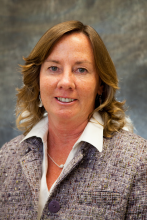CBE Seminar: Plants as Molecular Foundries - From Earth to Deep Space

Professor
Chemical Engineering
UC Davis
Global HealthShare Initiative, University of California
Center for the Utilization of Biological Engineering in Space (CUBES)
Non-UCI people, please use this registration link: https://forms.gle/9jJFiPPkYCB6E3my9
Abstract: Plants are a vast renewable source of important natural products, and the development of genetic engineering techniques has opened up a myriad of new possibilities for extending the biosynthetic capabilities of plants. Examples include the production of heterologous proteins and new metabolic pathways in whole plants, harvested plant tissues, and in vitro systems such as plant cell cultures in bioreactors. Although plant biotechnology has been deployed commercially for decades for improved agronomic traits of crops, the combination of new plant expression technologies and synthetic biology components, inexpensive DNA synthesis, and novel bioprocessing strategies are enabling plants and plant cells to be used as molecular foundries. For example, new production platforms based on transient expression in nontransgenic plants within contained manufacturing facilities are showing enormous promise for rapid, scalable, and lower cost production of vaccines and therapeutics. Plants are unique higher eukaryotic production hosts that can be very simply grown using light, water, carbon dioxide and mineral nutrients. They not only serve as a “single use disposable bioreactor,” but are completely biodegradable/recyclable and linearly scalable. In addition, plant cell suspension cultures grown in bioreactors are an alternative to more well-developed bioproduction systems using bacterial, yeast, mammalian and insect cell cultures. Although the first FDA-approved human therapeutic made in plant cell culture was introduced just ten years ago (ElelysoTM made in transgenic carrot cultures), plant cell culture offers a number of advantages: simple, chemically-defined, low cost animal component-free medium; the ability to produce complex glycoproteins; potential for long-term operation; and inability to propagate mammalian viruses. However, these systems are not without their own challenges. This presentation will describe some of the unique challenges encountered when using plants as molecular foundries, as well as our group’s research to increase productivity, product quality, and production speed, with applications ranging from medical countermeasures for biodefense on Earth to molecular pharming on Mars.
Bio: Karen McDonald is a professor of chemical engineering at UC Davis. She is currently the division lead for the Food and Pharmaceutical Synthesis Division of a multi-university NASA-funded Space Technology Research Institute called the Center for the Utilization of Biological Engineering in Space (CUBES: https://cubes.space/), which supports biomanufacturing technologies for Mars exploration. From 2013-2018, she served as the faculty director for the UC Davis ADVANCE Institutional Transformation program, an NSF-funded program to improve the recruitment, retentio and advancement of women STEM faculty. She served for 13 years from 2001-2013 as associate dean for Research and Graduate Studies in the College of Engineering. Professor McDonald’s research is aimed at the development of efficient, environmentally-friendly, cost-effective and globally-deployable biomanufacturing approaches for the production of recombinant proteins using plant-based production systems. She received her B.S. from Stanford University, her M.S. from UC Berkeley, and her Ph.D. from the University of Maryland, College Park, all in chemical engineering. She is a Fellow of the American Institute of Chemical Engineers and the recipient of the 2022 D.I.C. Wang Award for Excellence in Biochemical Engineering.
Host: Professor Nancy Da Silva and Professor Szu-Wen Wang
Share
Upcoming Events
-
MSE 298 Seminar: Molecular Modeling in the Age of AI - From Energy Materials to Device Simulations
-
CBE 298 Seminar: Metal Electrodeposition for Modern Mineral Refining
-
MSE 298 Seminar: Quasi-1D/2D Charge-Density-Wave Materials - From Exotic Physics to Application Prospects
-
EECS Seminar: Steering Diffusion Models for Generative AI, From Multimodal Priors to Test-Time Scaling
-
CBE 298 Seminar: Finding Catalysts of Gut Reactions - The Gut Microbiota in Disease Onset and Treatment
